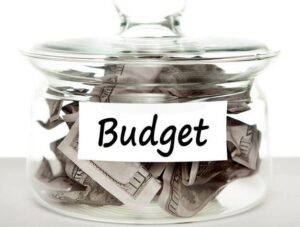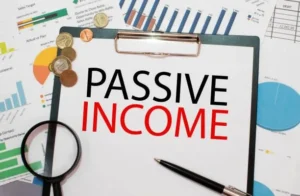Debt can feel like a looming shadow, creeping up on you while you’re busy trying to enjoy life. Even if it’s student loans, credit card debt, or that sneaky car loan, the weight of financial obligations can be overwhelming. According to a survey by the Federal Reserve, nearly 80% of Americans have some form of debt, and it can feel like a never-ending cycle. If you’re tired of feeling like you’re drowning in payments, you’re in the right place!
In this post, we’ll explore 13 simple tips to help you pay off debts faster. With practical insights and expert advice.
Why Paying Off Debt Matters
Before we jump into the nitty-gritty, let’s discuss why paying off your debts should be a top priority.
The Cost of Debt
- Interest Rates: High-interest debts, especially credit cards, can accumulate quickly. The average credit card interest rate in 2025 hovers around **20%**, making it a costly endeavor to carry a balance.
- Stress and Anxiety: A study from the **American Psychological Association** found that finances are the leading cause of stress for **72% of Americans**.
As the great Benjamin Franklin wisely stated, “The borrower is slave to the lender.” So, let’s break those chains!
Tip 1: Create a Budget

The first step to paying off debt is to create a budget. If you don’t know where your money is going, how can you expect to control it?
- Track Your Income and Expenses: Use apps like Mint or YNAB (You Need A Budget) to monitor your finances.
- Identify Areas to Cut: Look for non-essential expenses that can be trimmed.
Statistics: A study by the National Endowment for Financial Education shows that individuals who budget are 50% less likely to overspend.
Tip 2: Use the Debt Snowball Method
The debt snowball method is a popular strategy where you focus on paying off your smallest debts first.
- List Your Debts:: Organize your debts from smallest to largest.
- Pay Minimums on Larger Debts: While you focus on the smallest debt, continue to make minimum payments on the others.
- Celebrate Small Wins: Once a debt is paid off, apply that payment to the next smallest debt.
Mark Twain said, “The secret to getting ahead is getting started.” This method helps build momentum and keeps you motivated!
Tip 3: Cut Unecessary Expenses
Take a hard look at your expenses and see where you can cut back. It’s amazing how much money you can save by making small lifestyle adjustments.
- Dining Out: Cut down on restaurant meals. Cooking at home can be both healthy and cost-effective.
- Subscriptions: Review your monthly subscriptions. Cancel any that you rarely use.
- Impulse Purchases: Avoid buying things on a whim. Give yourself a 24-hour rule before making non-essential purchases.
Statistics: According to a study by **Bankrate**, **59% of Americans** have made at least one lifestyle change to save money during financial hardships.
Tip 4: Increase Your Income

If your current income isn’t cutting it, it’s time to explore ways to boost your earnings.
- Side Hustles: Consider freelance work, tutoring, or driving for a rideshare service. It’s all about leveraging your skills!
- Sell Unused Items: Declutter your home and sell things you no longer need. Websites like eBay and Facebook Marketplace can help.
- Ask for a Raise: If you’ve been working hard, don’t be afraid to ask for a raise at your current job.
Financial expert Dave Ramsey states, “If you’re not making enough money, you’ve got to create more income.” Wise words that resonate!
Tip 5: Automate Your Payments
Automating your payments can help you stay on track without the hassle of remembering due dates.
- Automatic Transfers: Set up automatic transfers to pay down debts each month.
- Bill Pay Services: Most banks offer bill pay services that allow you to automate regular payments.
Statistics: A study by Experian found that individuals who automate their payments are **36% less likely** to miss a payment.
“Automating payments is like having a personal assistant—without the awkward small talk!”
Tip 6: Negotiate Lower Interest Rates
Don’t Be Afraid to Ask.
Many people don’t realize that they can negotiate lower interest rates on their loans or credit cards.
- Contact Your Lender: Reach out and explain your situation. You might be surprised at their willingness to help.
- Research Competitors: If they refuse, research other lenders who may offer better rates and use that as leverage.
“You miss 100% of the shots you don’t take.” — Wayne Gretzky. So take that shot and negotiate!
Tip 7: Use Windfalls Wisely
Make Your Money Work for You.
Did you receive a tax refund, bonus, or inheritance? Don’t blow it on a shopping spree!
- Put It Toward Debt: Use windfalls to pay off debts faster, especially high-interest ones.
- Invest for the Future: If you’re in a good place financially, consider investing part of your windfall to grow your wealth.
According to a survey by the **National Endowment for Financial Education**, **70% of Americans** do not use windfalls wisely, leading to missed opportunities.
“Using your tax refund to buy new shoes instead of paying off debt is the financial equivalent of using a lifebuoy as a beach ball!”
Tip 8: Consider Debt Consolidation
If you’re juggling multiple debts, debt consolidation might be the answer.
- Lower Interest Rates: Consolidating debts can lead to lower overall interest rates, saving you money in the long run.
- Simplified Payments: Instead of managing several payments, you’ll have one monthly payment to worry about.
“The only way to get out of debt is to pay it off.” — Unknown.
How To Get Started:
- Research Options: Look into personal loans or balance transfer credit cards with low-interest rates to consolidate your debts.
—
Frequently Asked Questions (FAQs)
Q1. What is the best way to prioritize debt repayment?
A: Many people use the debt snowball method, where you pay off the smallest debts first to gain momentum.
Q2. How can I stay motivated while paying off debt?
A: Celebrate small wins, keep your goals visible, and involve family or friends for accountability.
Q3. What if I can’t afford my minimum payments?
A: Communicate with your creditors right away. They may offer assistance or a temporary payment plan.
Q4. Is debt consolidation a good idea?
A: If it leads to lower interest rates and simplifies payments, it can be very effective. However, ensure you understand the terms.
Q5. How can I avoid falling back into debt after paying it off?
A: Create a budget, stick to it, and always have an emergency fund to avoid relying on credit cards for unexpected expenses.
—
Facing a financial crisis can be daunting, but with the right strategies and a proactive approach, you can navigate your way to a more secure financial future. By taking actionable steps—like creating a budget, increasing your income, and maintaining open communication—you’ll put yourself in a better position to handle unexpected events.
Have in mind that, it’s not just about getting out of debt; it’s about building a sustainable financial future. So, what strategies will you start implementing today? Here’s to a debt-free tomorrow! Happy saving!










8hqk9z
2g72fr
l3yw63
p4qpy5
3nc4y3
uhq12f